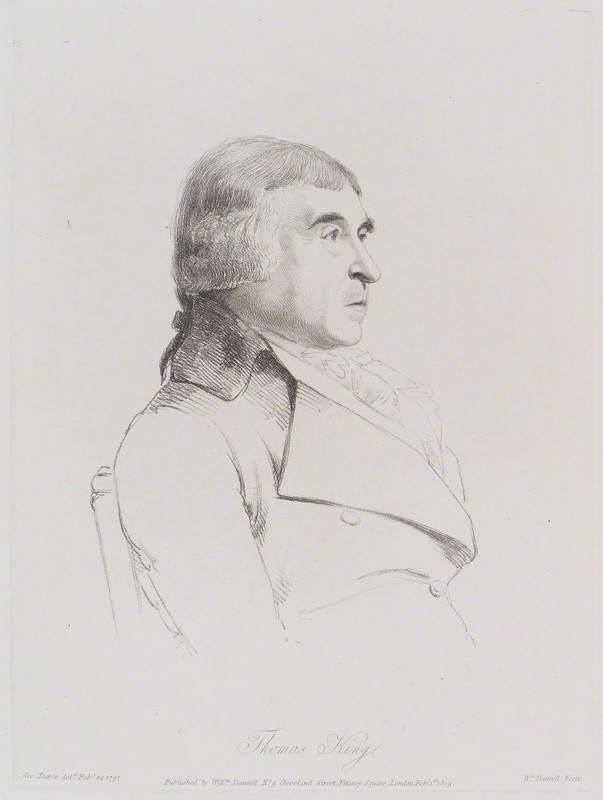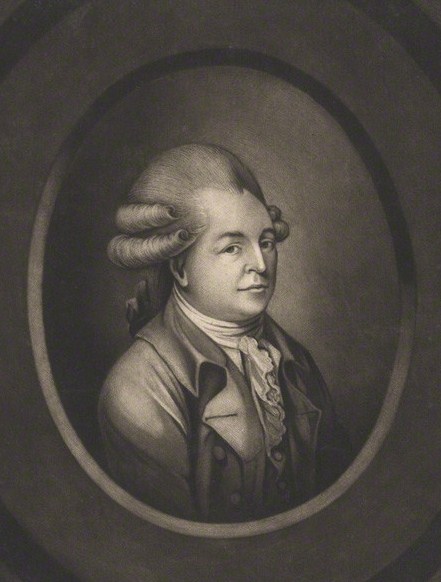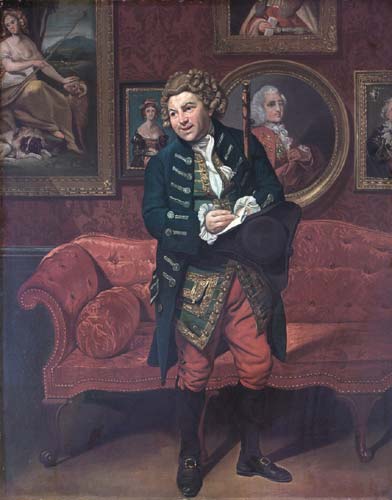|
The School For Vanity
''The School for Vanity'' is a 1783 comedy play by the British writer Samuel Jackson Pratt. It premiered at the Theatre Royal, Drury Lane in London on 29 January 1783. The original Drury Lane cast included Thomas King as Sir Hercules Caustic, John Palmer as Sighwell, James William Dodd as Lord Frolic, William Brereton as Valentine Onslow, Robert Baddeley as Secondhand, William Parsons as Alderman Ingot, Elizabeth Hopkins as Lady Blaze, Mary Bulkley as Widow Wherett and Elizabeth Farren Elizabeth Farren (c. 175923 April 1829) was an Irish actress of the late 18th century. Born in Cork in 1759 her father, George Farren was a surgeon. His drinking habits brought on early death and his widow returned to Liverpool. Her mother went ... as Ophelia Wyndham.Hogan p.588 References Bibliography * Nicoll, Allardyce. ''A History of English Drama 1660-1900: Volume III''. Cambridge University Press, 2009. * Hogan, C.B (ed.) ''The London Stage, 1660-1800: Volume V''. Southern Illinoi ... [...More Info...] [...Related Items...] OR: [Wikipedia] [Google] [Baidu] |
Samuel Jackson Pratt
Samuel Jackson Pratt (25 December 1749 – 4 October 1814) was a prolific English poet, dramatist and novelist, writing under the pseudonym of "Courtney Melmoth" as well as under his own name. He authored around 40 publications between 1770 and 1810, some of which are still published today, and is probably best remembered as the author of ''Emma Corbett: or the Miseries of Civil War,'' (1780) and the poem ''Sympathy'' (1788). Although his reputation was tainted by scandal during his lifetime, he is today recognised as an early campaigner for animal welfare and the first English writer to treat the American Revolution as a legitimate subject for literature. Biography Early life Samuel Jackson Pratt was born "to a very respectable family" on 25 December 1749, in St Ives, Huntingdonshire. His father was a brewer,Dictionary of National Biography 1921–1922 Vols 1–20 who twice served as High Sheriff of Huntingdonshire. Pratt was educated at Felsted, in Essex and was later o ... [...More Info...] [...Related Items...] OR: [Wikipedia] [Google] [Baidu] |
Theatre Royal, Drury Lane
The Theatre Royal, Drury Lane, commonly known as Drury Lane, is a West End theatre and Grade I listed building in Covent Garden, London, England. The building faces Catherine Street (earlier named Bridges or Brydges Street) and backs onto Drury Lane. The building is the most recent in a line of four theatres which were built at the same location, the earliest of which dated back to 1663, making it the oldest theatre site in London still in use. According to the author Peter Thomson, for its first two centuries, Drury Lane could "reasonably have claimed to be London's leading theatre". For most of that time, it was one of a handful of patent theatres, granted monopoly rights to the production of "legitimate" drama in London (meaning spoken plays, rather than opera, dance, concerts, or plays with music). The first theatre on the site was built at the behest of Thomas Killigrew in the early 1660s, when theatres were allowed to reopen during the English Restoration. Initially ... [...More Info...] [...Related Items...] OR: [Wikipedia] [Google] [Baidu] |
London
London is the capital and largest city of England and the United Kingdom, with a population of just under 9 million. It stands on the River Thames in south-east England at the head of a estuary down to the North Sea, and has been a major settlement for two millennia. The City of London, its ancient core and financial centre, was founded by the Romans as '' Londinium'' and retains its medieval boundaries.See also: Independent city § National capitals The City of Westminster, to the west of the City of London, has for centuries hosted the national government and parliament. Since the 19th century, the name "London" has also referred to the metropolis around this core, historically split between the counties of Middlesex, Essex, Surrey, Kent, and Hertfordshire, which largely comprises Greater London, governed by the Greater London Authority.The Greater London Authority consists of the Mayor of London and the London Assembly. The London Mayor is distinguished fr ... [...More Info...] [...Related Items...] OR: [Wikipedia] [Google] [Baidu] |
Comedy Play
Comedy is a genre of dramatic performance having a light or humorous tone that depicts amusing incidents and in which the characters ultimately triumph over adversity. For ancient Greeks and Romans, a comedy was a stage-play with a happy ending. In the Middle Ages, the term expanded to include narrative poems with happy endings and a lighter tone. In this sense Dante used the term in the title of his poem, the ''Divine Comedy'' (Italian: ''Divina Commedia''). The phenomena connected with laughter and that which provokes it have been carefully investigated by psychologists. The predominating characteristics are incongruity or contrast in the object, and shock or emotional seizure on the part of the subject. It has also been held that the feeling of superiority is an essential factor: thus Thomas Hobbes speaks of laughter as a "sudden glory." Modern investigators have paid much attention to the origin both of laughter and of smiling, as well as the development of the "play insti ... [...More Info...] [...Related Items...] OR: [Wikipedia] [Google] [Baidu] |
Thomas King (actor)
Thomas King (1730–1805) was an English actor, known also as a theatre manager and dramatist. Early life Born 20 August 1730, in the parish of St George's, Hanover Square, London, where his father was a tradesman, he was educated at a grammar school in Yorkshire, and then at Westminster School. Articled to a London solicitor, he was taken to a dramatic school, and in 1747, with Edward Shuter, he ran away, and joined a travelling company at Tunbridge. He then had a period acting in barns, in the course of which (June 1748) he played in a booth at Windsor, directed by Richard Yates. London actor King was seen by David Garrick, who, on the recommendation of Yates, engaged him for Drury Lane. His first part was the Herald in ''King Lear''. On 19 October 1748, when Philip Massinger's '' New Way to Pay Old Debts'' was given for the first time at Drury Lane, he played Allworth. He was in the same season the original Murza in Samuel Johnson's ''Irene'', and played a part in ''The Hen- ... [...More Info...] [...Related Items...] OR: [Wikipedia] [Google] [Baidu] |
John Palmer (actor)
John Palmer (c. 1742–1798) was an actor on the English stage in the eighteenth century. There was also another John Palmer (1728–1768) who was known as Gentleman Palmer. Richard Brinsley Sheridan nicknamed him Plausible Jack. Birth and youth He was born in the parish of St Luke's, Old Street, London, about 1742, was son of a private soldier. In 1759 the father served under the Marquis of Granby, and subsequently, on the marquis's recommendation, became a bill-sticker and doorkeeper at Drury Lane Theatre in London. When about eighteen John recited the parts of George Barnwell and Mercutio to David Garrick, but Garrick found no promise in him, and joined his father in urging him to enter the army. Garrick even got a small military appointment for him; but Palmer refused to follow his counsel, and entered the shop of a print-seller on Ludgate Hill. On 20 May 1762, for the benefit of his father and three others, he made his first appearance on any stage, playing Buck in the ''En ... [...More Info...] [...Related Items...] OR: [Wikipedia] [Google] [Baidu] |
James William Dodd
James William Dodd (1740?–1796) was an English actor, one of David Garrick's picked company. Early life Born in London about 1740, he is said to have been the son of a hairdresser. He was educated at the grammar school in Holborn. A success in a school performance of the '' Andria'' of Terence decided him to become an actor. Aged 16, Dodd is said to have appeared at Sheffield as Roderigo in '' Othello''. He was met by Tate Wilkinson in Norwich in 1763. He then played in comedy and tragedy, and was popular, according to Wilkinson. An engagement in Bath, Somerset followed, and proved a stepping-stone to London. At Drury Lane John Hoadly saw Dodd in ''The Jealous Wife'' and recommended him to David Garrick, who decided with James Lacy to engage him for Drury Lane Theatre. Dodd's first appearance at Drury Lane took place 3 October 1765 as Faddle in Edward Moore's comedy, ''The Foundling''. For 31 years, Dodd remained there. During this long period he played mainly beaux and ... [...More Info...] [...Related Items...] OR: [Wikipedia] [Google] [Baidu] |
William Brereton (actor)
William Brereton (1751–1787) was an English stage actor. He was a member of the company of the Theatre Royal, Drury Lane for eighteen years, under the management of David Garrick and subsequently Richard Brinsley Sheridan. He was born in Bath, the son of William Brereton who was master of ceremonies in the spa town. He made his Drury Lane debut in the title role of ''Douglas'' by John Home in 1768. Weakened by alcoholism and mental instability, he died in an asylum in Hoxton in 1787. He was married to the actress Priscilla Brereton, who later married John Philip Kemble. He was said to have had an unrequited passion for Sarah Siddons which contributed to his mental decline.Bloom & Bloom p.312 Selected roles * Romeo in ''The Jubilee'' by David Garrick (1769) * Mendoza in '' Braganza'' by Robert Jephson (1775) * Colonel Tivy in '' Bon Ton'' by David Garrick (1775) * Prince Walteof in ''The Battle of Hastings'' by Richard Cumberland (1778) * Valentine Onslow in '' The School for Va ... [...More Info...] [...Related Items...] OR: [Wikipedia] [Google] [Baidu] |
Robert Baddeley (actor)
Robert Baddeley (1733–1794) was an England, English actor. His parentage is unknown, as is his place of birth, though the latter may have been London. He worked as a cook and valet, and one of his employers was the actor-manager Samuel Foote, who may have inspired him to take to the stage. He spent three years following another employer on a Grand Tour, which helped him to develop the facility with languages and accents which was to be a hallmark of his career. In 1760 Baddeley made his stage debut in one of Foote's productions at the Haymarket Theatre in London. Soon afterwards he trod the boards of the Theatre Royal, Drury Lane and the Smock Alley Theatre in Dublin. By 1762 he was a full member of the Drury Lane company, and he remained there for the rest of his career, while also playing summer seasons at the Haymarket. He was a great success in low comedy and servants' parts, and often played comic foreigners such as Canton in ''The Clandestine Marriage''. In 1777 he play ... [...More Info...] [...Related Items...] OR: [Wikipedia] [Google] [Baidu] |
William Parsons (actor)
William Parsons (29 February 1736 – 3 February 1795) was a British actor and painter in the mid to late eighteenth century. He appeared mostly at Theatre Royal, Drury Lane, Drury Lane and Theatre Royal Haymarket, Haymarket in minor to supporting roles, but also had prominent roles in plays like ''Volpone'' and ''Hamlet''. Early life Parsons was born to William and Elizabeth (née Latter) Parsons in 1736. His father William did carpentry work in Bow Lane, Cheapside and City of London; his mother Elizabeth was from Maidstone. Parsons attended St Paul's School where surveyor Sir Henry Cheere or Cheke was his instructor. Parsons took part in amateur entertainment with William Powell (English actor), William Powell and Charles Holland (actor), Charles Holland. In 1756, Parsons played Kent in King Lear in Haymarket. Professional career Earlier roles Parsons's first professional role was that of Southampton in poet Henry Jones (poet), Henry Jones's ''Earl of Essex'' play in Yo ... [...More Info...] [...Related Items...] OR: [Wikipedia] [Google] [Baidu] |
Elizabeth Hopkins
Elizabeth or Elisabeth may refer to: People * Elizabeth (given name), a female given name (including people with that name) * Elizabeth (biblical figure), mother of John the Baptist Ships * HMS ''Elizabeth'', several ships * ''Elisabeth'' (schooner), several ships * ''Elizabeth'' (freighter), an American freighter that was wrecked off New York harbor in 1850; see Places Australia * City of Elizabeth ** Elizabeth, South Australia * Elizabeth Reef, a coral reef in the Tasman Sea United States * Elizabeth, Arkansas * Elizabeth, Colorado * Elizabeth, Georgia * Elizabeth, Illinois * Elizabeth, Indiana * Hopkinsville, Kentucky, originally known as Elizabeth * Elizabeth, Louisiana * Elizabeth Islands, Massachusetts * Elizabeth, Minnesota * Elizabeth, New Jersey, largest city with the name in the U.S. * Elizabeth City, North Carolina * Elizabeth (Charlotte neighborhood), North Carolina * Elizabeth, Pennsylvania * Elizabeth Township, Pennsylvania (other) * Elizabeth, W ... [...More Info...] [...Related Items...] OR: [Wikipedia] [Google] [Baidu] |
Mary Bulkley
Mary Bulkley, née Wilford (1747/8 – 1792), known professionally as Mrs Bulkley, Miss Bulkley, and later Mrs Barresford, was an English eighteenth-century dancer and comedy stage actress. She performed at various theatres, especially Covent Garden Theatre, the Theatre Royal, Dublin, the Theatre Royal, Edinburgh, the Theatre Royal Haymarket and Shrewsbury Theatre. She performed in all or most of the Shakespearean comedies, and in several tragedies, besides many contemporary comedy plays. She played the part of Hamlet at least twice. She was considered a beauty when young, and her talent was praised. She married George Bulkley and later Captain Ebenezer Barresford, and openly took several lovers. Her early career was successful, but later she was hissed on stage due to her extra-marital affairs, and she died in poverty. Background Mary Bulkley was born as Mary Wilford. Her father was Edward Wilford (d. 1789), an official and treasurer at the Covent Garden Theatre. Because her ... [...More Info...] [...Related Items...] OR: [Wikipedia] [Google] [Baidu] |







.jpg)